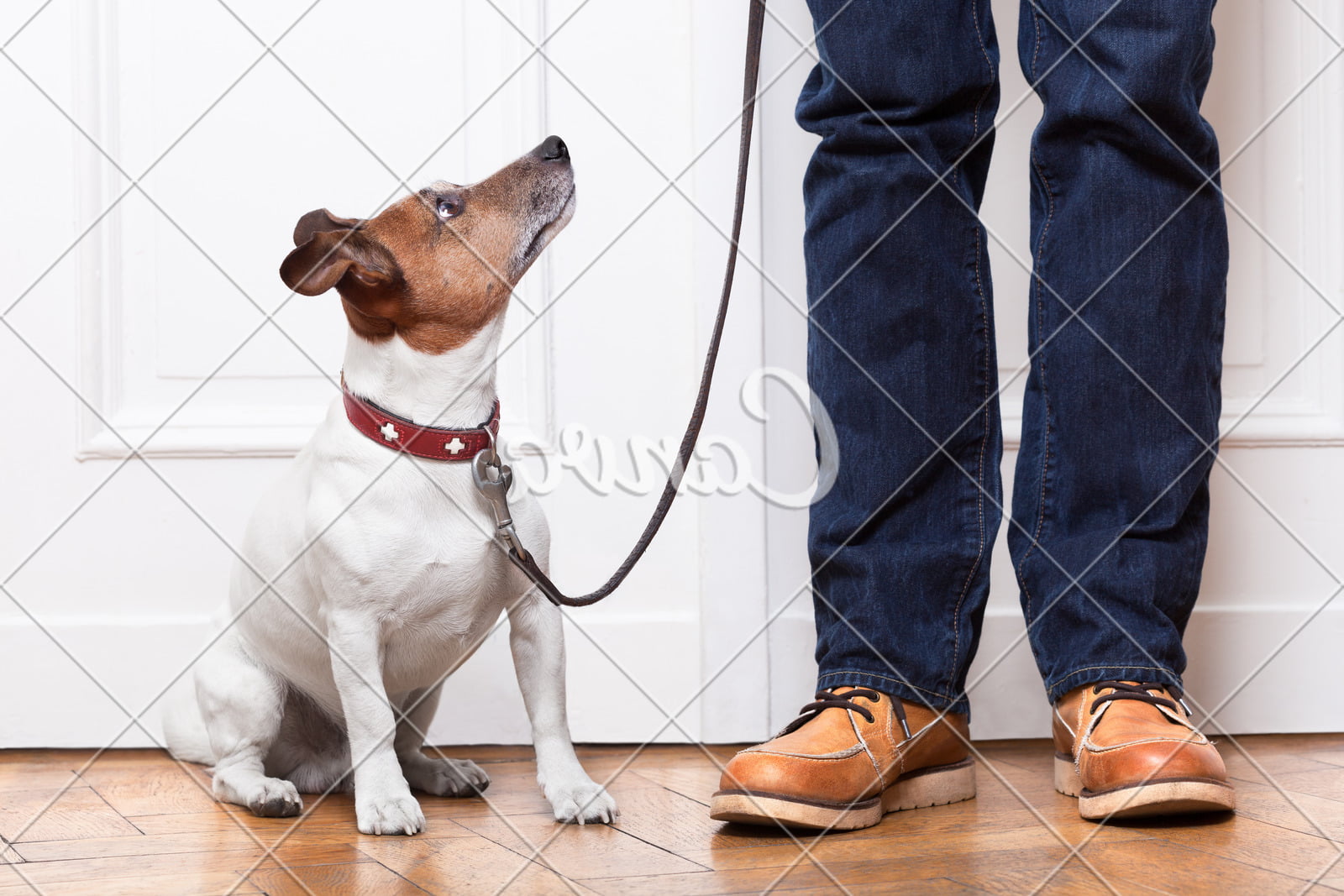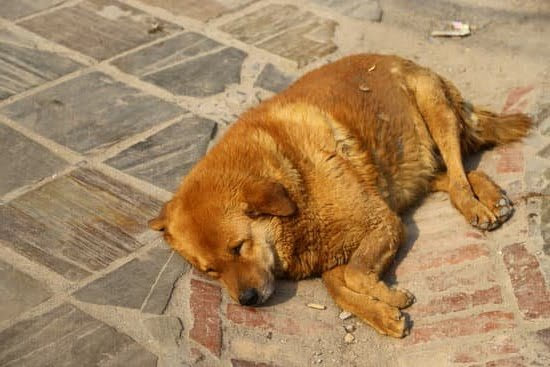Potty training older dogs can be a challenging task for pet owners. Many may ask themselves, “Is my dog too old to potty train?” It is not uncommon for older dogs to struggle with potty training, but with the right approach and understanding, it is possible to help them learn.
As our canine companions age, they may experience physical and mental changes that can make potty training more difficult. In this article, we will explore the common challenges of potty training older dogs, signs that your dog may be too old to potty train, and tips for achieving success in potty training an older dog.
Understanding the reasons why older dogs may struggle with potty training is essential in addressing this issue. From medical conditions to changes in routine or environment, there are various factors that can contribute to an older dog’s difficulty in mastering proper potty behavior. Let’s delve into these challenges and explore effective strategies for successful potty training of older dogs.
Signs That Your Dog May Be Too Old to Potty Train
There are certain signs that may indicate that your older dog is struggling with potty training. One of the most obvious signs is having accidents in the house, especially if they were previously potty trained.
Another sign is if your dog shows no interest in going outside to do their business or seems to have trouble holding their bladder or bowel movements. Additionally, if your dog frequently urinates or defecates in their sleeping area, it may indicate that they are having difficulty controlling their bodily functions.
Another sign that your dog may be too old to potty train is if they have any underlying health issues that affect their ability to control their bladder or bowels. Health issues such as urinary tract infections, diabetes, kidney disease, and cognitive dysfunction can all contribute to potty training difficulties in older dogs.
Additionally, if your senior dog displays confusion or disorientation when it comes to toileting behaviors, it may indicate that they are experiencing age-related cognitive decline. It’s important to observe these signs and consider whether your dog may need some extra help and patience as you work on potty training them.
In some cases, an older dog may simply need a refresher on proper toileting habits due to changes in routine or environment. However, if you notice multiple signs indicating that your older dog is struggling with potty training, it’s important to approach the situation with understanding and compassion.
Understanding the Reasons Why Older Dogs May Struggle With Potty Training
As dogs age, their bodies and behaviors change, which can impact their ability to potty train. Understanding the reasons why older dogs may struggle with potty training can help owners approach the process with empathy and patience.
Physical Limitations
Older dogs may experience physical limitations that make it difficult for them to control their bladder or make it outside in time to eliminate. Conditions such as arthritis, muscle weakness, or cognitive decline can affect a dog’s ability to signal when they need to go out or physically hold their bladder.
Past Trauma or Negative Associations
Some older dogs may have had negative experiences with potty training in the past, leading to fear or anxiety surrounding the process. This could be due to punishment for accidents, lack of proper potty training in their early years, or even changes in environment that disrupted their previous habits.
Medical Conditions
Underlying medical conditions such as urinary tract infections, diabetes, kidney disease, or hormonal imbalances can contribute to accidents and difficulty with potty training in older dogs. It’s important for owners to rule out any potential health issues with a veterinarian before assuming a behavioral issue.
Understanding these reasons can help pet owners approach potty training an older dog with compassion and understanding. By addressing any underlying physical or emotional issues and making adjustments to accommodate an aging dog’s needs, it is possible to successfully potty train an older dog.
Tips for Potty Training an Older Dog
Potty training an older dog can definitely be challenging, but it is not impossible. With the right approach and plenty of patience, you can successfully teach your senior pup new potty habits. Here are some tips to help you navigate this process:
1. Establish a Routine: Older dogs thrive on routine, so set consistent times for potty breaks throughout the day. Take your dog out first thing in the morning, after meals, before bedtime, and several times in between.
2. Use Positive Reinforcement: Just like with puppies, positive reinforcement is key to potty training older dogs. Reward your furry friend with treats and praise when they do their business outside.
3. Consider Health Issues: Sometimes, older dogs may struggle with potty training because of underlying health issues such as arthritis or incontinence. Have your vet check for any medical conditions that could be affecting your dog’s ability to control their bladder.
4. Be Patient and Understanding: It’s important to remember that potty training an older dog may take longer than with a younger pup. Be patient and understanding as your dog adjusts to the new routine and learns where they should go potty.
5. Clean Up Accidents Properly: Accidents will happen during the potty training process. When they do, be sure to clean up any messes thoroughly using enzymatic cleaners to remove the scent and discourage repeat accidents.
6 Adjust Expectations: It’s important to adjust your expectations when potty training an older dog. Understand that there may be setbacks along the way, but stay consistent and continue working with your furry friend.
By following these tips, you can make the journey of potty training an older dog a little smoother for both you and your loyal companion.
Importance of Consistency and Patience in Potty Training an Older Dog
Potty training an older dog can be challenging, but with consistency and patience, it is certainly possible to achieve success. One of the most important things to remember when potty training an older dog is to establish a consistent routine.
This means taking them out at the same times every day, such as first thing in the morning, after meals, and before bedtime. Consistency helps older dogs understand what is expected of them and makes it easier for them to learn where they should go potty.
Patience is also key when potty training an older dog. It’s important to remember that they may have ingrained habits from years of not being properly trained, and it will take time for them to unlearn these behaviors. There will likely be accidents along the way, but it’s important to remain calm and patient while your older dog learns where they should go potty.
Using positive reinforcement is another effective strategy when potty training an older dog. This can include giving them treats or verbal praise when they go potty in the right spot. Positive reinforcement helps older dogs associate going potty in the designated area with something positive, making them more likely to repeat this behavior in the future.
| Consistency | Patience |
|---|---|
| Establish a consistent routine for taking your older dog out | It will take time for your older dog to unlearn ingrained habits |
| Consistency helps older dogs understand what is expected of them | Remain calm and patient during accidents |
| Consistent routines make it easier for older dogs to learn where they should go potty | Using positive reinforcement can help reinforce good behavior |
Using Positive Reinforcement in Potty Training Older Dogs
As dogs get older, it may seem like they are set in their ways and unable to learn new habits, including potty training. However, it is important to understand that it is possible to potty train an older dog with the right approach. Using positive reinforcement is a key aspect of successfully potty training an older dog.
Positive reinforcement involves rewarding your dog for exhibiting the desired behavior, such as going potty in the designated area. This can be done using treats, praise, or any other form of positive acknowledgment that motivates your dog. It is important to consistently reward your dog immediately after they have gone potty in the appropriate spot to reinforce this behavior.
Consistency is crucial when using positive reinforcement in potty training an older dog. This means establishing a routine for taking your dog outside to go potty and being patient while waiting for them to do so. Over time, your dog will start associating going potty in the designated area with positive rewards, making them more likely to continue this behavior.
It is also important to avoid punishment when potty training an older dog. Punishing an older dog for accidents could lead to fear or anxiety around the act of going potty, making it even more challenging to train them effectively. Instead, focusing on rewarding and praising the desired behavior will help build a positive association with going potty in the right place.
| Aspect | Details |
|---|---|
| Positive Reinforcement | Rewarding desired behavior with treats or praise |
| Consistency | Establishing a routine and being patient during potty breaks |
| Avoiding Punishment | Avoiding punishment and focusing on building positive associations |
Overcoming Setbacks and Challenges in Potty Training an Older Dog
Potty training an older dog can be a difficult and frustrating process, especially if your furry friend has developed bad habits over the years. It’s important to understand that while it may take longer to potty train an older dog, it is not impossible. One of the biggest challenges in potty training an older dog is overcoming setbacks and addressing any underlying issues that may be contributing to their potty training difficulties.
One sign that your dog may be too old to potty train is if they have consistently struggled with accidents in the house despite your best efforts. Additionally, if your dog has never been properly trained or has had inconsistent training in the past, this can also make it more challenging to potty train them in their later years.
It’s important to assess whether your dog is genuinely having difficulty with potty training or if there may be underlying health issues that need to be addressed.
When faced with setbacks and challenges in potty training an older dog, it’s crucial to remain patient and consistent. Older dogs may take longer to learn new habits, so it’s important to stay committed to the process and provide plenty of positive reinforcement when they exhibit good behavior. Remember that accidents are a natural part of the learning process, so it’s important not to get discouraged when they occur.
In some cases, seeking professional help for potty training an older dog may be necessary, especially if you have tried various methods without success. A professional dog trainer or behaviorist can help identify any underlying issues contributing to your dog’s potty training difficulties and provide personalized guidance on how to overcome these challenges. With patience, consistency, and possibly professional assistance, even older dogs can learn proper potty habits.
Seeking Professional Help for Potty Training Older Dogs
If you have tried various potty training methods and your older dog still struggles with accidents, seeking professional help may be the best option. A professional dog trainer or behaviorist can assess your dog’s specific needs and create a customized potty training plan. Here are some reasons why seeking professional help is beneficial:
1. Expertise: Professional trainers have the expertise and experience to understand the underlying issues causing your older dog to struggle with potty training. They can identify any behavioral or medical reasons that may be contributing to the problem.
2. Customized Plan: A professional trainer will create a customized potty training plan tailored to your older dog’s unique needs. This personalized approach can address specific challenges and set realistic goals for successful potty training.
3. Support and Guidance: Professional trainers provide ongoing support and guidance throughout the potty training process. They can offer valuable advice, troubleshooting tips, and encouragement to help you navigate through setbacks and challenges.
Conclusion
In conclusion, potty training an older dog is definitely possible with patience, consistency, and the right approach. It’s important to understand that every dog is unique and may require a different approach when it comes to potty training. While some older dogs may struggle with potty training due to health issues or past experiences, with the right guidance and positive reinforcement, they can overcome these challenges.
Seeking professional help for potty training older dogs is also a valuable option. A professional trainer can provide personalized guidance and strategies to address your dog’s specific needs. Additionally, they can offer you support and advice on overcoming setbacks and challenges throughout the potty training process.
Embracing the journey of potty training an older dog means being patient and understanding that it may take time for your furry friend to adjust to new habits. Celebrate small victories along the way and remember that every step in the right direction is a significant achievement. With love, patience, and consistency, there is no such thing as “too old” when it comes to potty training a dog.
Frequently Asked Questions
At What Age Is It Too Late to Potty Train a Dog?
It is generally not impossible to potty train a dog at any age, but it may be more challenging the older they get. The ideal time to start potty training a dog is around 12-16 weeks old.
Can an Older Dog Still Be Potty Trained?
Yes, older dogs can still be potty trained with patience and consistency. It may take longer for them to learn new habits, but it is definitely possible. Understanding their physical limitations and adjusting expectations can help in the process.
How Do You Train an Older Dog to Stop Peeing in the House?
Training an older dog to stop peeing in the house requires identifying any underlying health issues, establishing a consistent routine for potty breaks, using positive reinforcement for desired behavior, and minimizing environmental triggers that may cause accidents. Patience and persistence are key.

Welcome to the blog! I am a professional dog trainer and have been working with dogs for many years. In this blog, I will be discussing various topics related to dog training, including tips, tricks, and advice. I hope you find this information helpful and informative. Thanks for reading!





